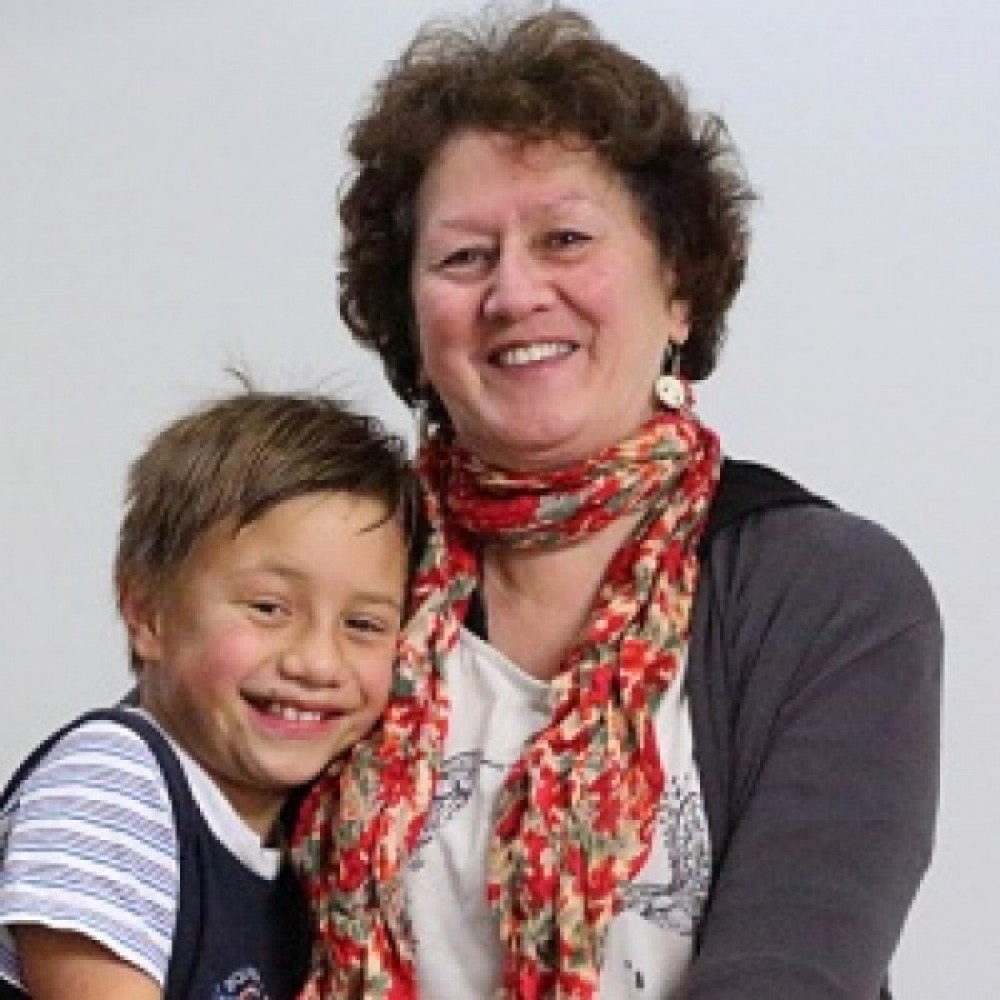She's a grandmother of six and has raised her nine-year-old mokopuna since she was five months old.
As the Director of Te Atawhai o te Ao Environmental and Health Research Institute based in Whanganui, she’s been able to explore her interest in intergenerational relationships.
One major research project looked at the experiences of Maori grandparents bringing up grandchildren, produced a report for the Health Research Council and assisted the Families Commission with its Maori grandparents report.
Another, currently being written up, focuses on the effects of intergenerational trauma in Maori society.
“We know that health can relate not just to issues from this lifetime, but can come down through generations,” Cherryl explains.
One major research project looked at the experiences of Maori grandparents bringing up grandchildren, produced a report for the Health Research Council and assisted the Families Commission with its Maori grandparents report.
Another, currently being written up, focuses on the effects of intergenerational trauma in Maori society.
“We know that health can relate not just to issues from this lifetime, but can come down through generations,” Cherryl explains.

“What’s happened previously certainly shapes the way we respond to contemporary events and can have a powerful impact on current mental wellbeing.”
At 60, Cherryl’s a baby boomer but, unlike the Pakeha population with its increasing bulge in the over 60s age group, for Maori it’s the youth population that’s the fastest growing. In a way this places more pressure on Maori over-60s to “be there” for other generations, to take on the roles appropriate to their age and to try to pass on traditional knowledge and wisdom.
Prioritising connections within whanau
Cherryl says for Maori there are ways of demarcating transitions into different age groups or life stages, eg, rangatahi (youth), kaumatua (elders) or ruahine, referring specifically to an older woman.
“You can only know your role and responsibility if you’ve been taught it,” she says, “and if there is respect for those roles.”
She believes it’s important to pass on, or actively teach, intergenerational roles in contemporary Maori society. She acknowledges this is difficult when whanau often live a long way apart, and for families where there are literally dozens of grandchildren.
“There needs to be a more conscious effort to maintain those links in a way that we never had to before,” she says. “It is important because the nurturing and caring and loving and compassion is not an automatic thing – those are things which need to be taught. In the busyness of people’s lives and the struggle for survival, those things can drop away unless you’re prioritising those connections with other members of your family. We can’t afford to take it for granted that these roles and relationships will be maintained.”
The wisdom of grandparents
During her own upbringing in the Wairarapa, it was grandparents who transmitted cultural knowledge to younger people.
"You don’t realise how much knowledge you have until you start seeing that the current younger generations don’t actually have that knowledge,” she says.
“The other big change for Maori is that many of us are working into our 60s and 70s [so] to just be with our grandchildren, that’s a huge luxury now. Ideally grandparents can teach so much. They can teach a love of things Maori in a very personal way that no one else can. Because parents can be busy with providing day to day needs, they often do not have the time to listen to a child. Grandparents are usually in slower mode. They can take the time to really listen and impart that love of things. Guidance is really about understanding where a child is going, blossoming and developing in themselves – and as a grandparent you’re there just to shape and gently affirm.”
Power of positive messages for young people
Elders can help young ones by giving them messages that help them cope in adverse circumstances – something that most will have to face. As an example, Cherryl tells the story of Hastings kaumatua Henare O’Keefe and his wife, who have fostered more than 200 children over the years. One of them is international opera singer Phillip Rhodes.
“As a teenager someone teased him about his name because of his father (who was abusive and eventually took his own life) and he went through a stage of wanting to change his name. But when he asked his foster parents they told him, ‘You need to keep that name even though it’s hurting you, because you have to put the mana back into that name’ – which in subsequent life he went on to do. Those messages are so powerful, and that’s what I mean by the wisdom coming through the generations. That needs to be there for children to help them, protect them and keep them strong.”
Ancestors as protectors
She harks back to her own life for another example, one that reminds her not only of her grandmother, but of the part her tupuna, or ancestors, still play in her life today.
“I remember my grandmother used to say to us, ‘It doesn’t matter wherever you go, which marae you are on, whose iwi it is, all of your tupuna are around you and you are absolutely safe. Yes, there are tapu places but you are protected and you need to know that.’ That’s stood me in such good stead over the years. As a Maori person that’s a really important feeling to have – feeling safe in the world.”
